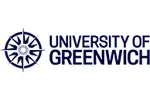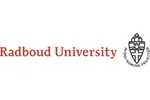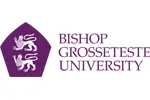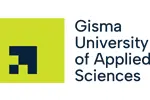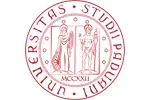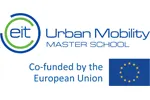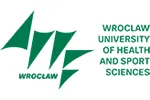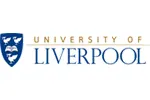The university has three campuses, each with modern teaching and learning facilities, including libraries, computers and laboratories, in beautiful historic buildings.
The Avery Hill Campus consists of two sites, Mansion Site and Southwood Site, both of which are located in the 86-acre Avery Hill Park in Eltham, south-east London. Only a few minutes' walk apart, these two Victorian sites house some of the best teaching, living and sporting facilities. For over 80 years the campus was home to Avery Hill Training College, some of whose 19th and 20th-century buildings are listed by English Heritage, while on Mansion Site there is a beautiful library housed in a former ballroom. The Avery Hill campus is home to the following Schools; Architecture & Construction, Education & Training and Health & Social Care.
The Greenwich Campus is on a World Heritage Site on the banks of the River Thames. The university's largest campus is centred on three baroque buildings designed by Sir Christopher Wren at the end of the 17th century. "More breathtaking than the Versailles of Louis XIV" is how The Independent newspaper described it. The library has an extensive collection of books and journals, as well as language laboratories, and a 200-PC computing facility. The university bookshop is located opposite, in the Mews Building. Other computer facilities are on campus, including specialist laboratories for the School of Computing & Mathematical Sciences. A TV studio and editing suites for use by Humanities & Social Sciences students are also on site. The Stephen Lawrence Gallery provides a showcase for the work of contemporary artists. The grounds of the Old Royal Naval College, in which the Greenwich Campus is situated, also houses the tourist attractions of the Painted Hall and Chapel. The Greenwich Campus is home to the following Schools; Business, Computing & Mathematical Sciences, Education & Training, Greenwich Maritime Institute and Humanities & Social Care.
The Medway Campus is a splendid Edwardian redbrick and ivy-clad campus - dating from 1903 - has benefited from £50 million in investment since 1996. Extensive new laboratories and research facilities have been opened at Medway and the university has linked with other educational establishments to develop the campus as a major higher education centre in the Medway region, known collectively as the Universities at Medway.
The centrepiece of the development at Medway is a magnificent learning resource centre, the Drill Hall Library, converted from a naval drill hall and offering 100,000 square feet of space. It houses a library, computers, study areas and teaching rooms. The Pilkington Building next door, converted from the naval canteen, contains a lecture theatre, exhibition space, teaching rooms, a bistro-style café and the base for the Universities at Medway Student Association. The Medway Campus is home to the following Schools; Business, Engineering, Health & Social Care, Natural Resources Institute, Pharmacy and Science.
Undergraduate Introduction
At the University of Greenwich, you will find dedicated teaching staff and support staff to help you achieve your goals. Many of our undergraduate programmes are work-related, with a strong professional and vocational focus. All of them will help you develop the skills you will need to get a good job. We have strong links with employers and offer support in finding work placements and part-time work while you study, as well as good career opportunities once you graduate.
The university has many links with industry, including national and multinational clients such as Atkins, Pfizer, GlaxoSmithKline, Powergen and BAE Systems, as well as small and medium enterprises. The university uses these connections both as a basis for research and enterprise activity, and to ensure that its curriculum remains relevant.
Postgraduate Introduction
At the University of Greenwich, you will find dedicated teaching staff and support staff to help you achieve your goals. Many of our postgraduate programmes are work-related, with a strong professional and vocational focus. All of them will help you develop the skills you will need to get a good job.
Research and enterprise at the University of Greenwich is one of the most rapidly growing areas of our work. We have a vibrant postgraduate community across all of our schools, the volume of our research activity is increasing by more than 30 per cent each year, and we are experiencing rapid growth in support from outside industry, business, and other funding bodies. Our university has also seen an increase in the government block grant for research of 123 per cent, as a result of the latest Research Assessment Exercise.
The university undertakes research in many different fields and is relevant and outward looking.
Examples of research
- A pioneering partnership between the University of Greenwich and the University for Modern Science and Arts in Cairo has seen a delegation of Egyptian students working in the laboratories of the School of Science in Medway as part of international research into genetic disease. Nine students from Cairo spent three weeks at the Medway Campus as part of their graduation project working on the human genome project. They used state-of-the-art molecular biology techniques and bioinformatics as part of a project to identify mutations which lead to genetic disease in humans. Greenwich students are due to visit Cairo later this year to address the second International Conference for Applications of Biotechechnology, organised jointly by both universities.
- A potential treatment for multiple sclerosis developed by the University of Greenwich in association with King's College, London, has begun clinical trials. The life sciences company BTG plc, which has licensed the research, is running the trials on a new compound, known as BGC20-0134. Dr Laurence Harbige and Dr Mike Leach, from the Biomedical & Drug Discovery Research Group in the School of Science, developed the new treatment following many years of research.
- Scientists at the university have been praised by former Prime Minister Gordon Brown for leading the way to a greener economy, as the world attempts to reduce global carbon emissions. Dr Paula Carey and Dr Colin Hills have developed a technology that captures carbon dioxide and turns it into rock. It simultaneously converts contaminated soil and industrial waste into harmless pebbles which can be recycled as a construction material. The scientists formed Carbon8 Systems, a spin-out company from the university's School of Science.
- With 30 full-time researchers the Fire Safety Engineering Group (FSEG), founded in 1985, is Europe's largest computational fire simulation research group. In recognition of its contribution to the advancement and application of professional fire protection engineering, FSEG was recently awarded the Jack Bono Engineering Communications Award by the US Society of Fire Protection Engineers. The group has also won several international and national prizes, including the European IST Prize in 2003, the Queen's Anniversary Prize in 2002 and the British Computer Society Award for IT in 2001. Bringing together engineers, computer modellers and psychologists, the FSEG takes a multidisciplinary approach to finding solutions to global problems and making a significant contribution to saving lives.
- Buildings and cars could be fuelled from energy extracted from water on their windows and other surfaces if chemists at our Medway Campus are successful in their quest to develop new approaches to photocatalysis - the process used to produce hydrogen from water using sunlight. Previous efforts to use the technology to produce hydrogen have been hampered because standard approaches that use titanium dioxide have limited potential as they only take advantage of a narrow section of the sun's spectrum. Dr Bruce Alexander and PhD student Craig Morton, from the university's School of Science, are investigating the potential of materials that gather energy from more of the sunlight and can be painted or sprayed on to external surfaces.
- NRI has played a major role in a parliamentary enquiry and report into global food security produced by the All Party Parliamentary Group on Agriculture and Food for Development. The report Why No Thought for Food argues that agriculture must be placed at heart of the nation's plans to fight poverty with at least 10 per cent of its overseas aid budget being spent on farming and agriculture. NRI is one of the leading agricultural research organisations in the UK. More than 70 staff provide research, consultancy, learning and advice to support sustainable development, economic growth and poverty reduction in the developing world.


